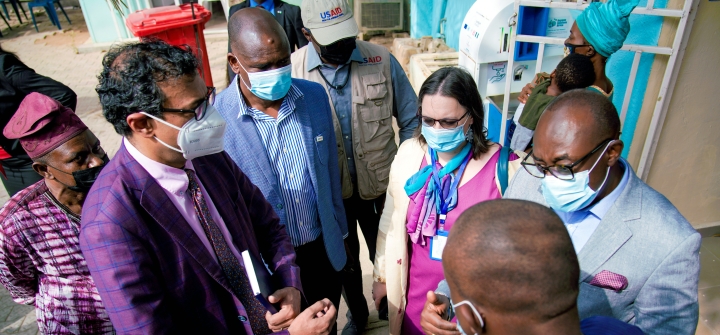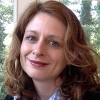5 Global Health Takeaways from Atul Gawande
Strong health systems, says Atul Gawande, MD, MPH, are a cornerstone of successful public health delivery—and in his new role as Assistant Administrator for Global Health at USAID, the renowned surgery professor and author is focused on not only strengthening health systems worldwide but seeking to global health more equitable.
In a chat last Friday with Johns Hopkins Bloomberg School of Public Health Dean Ellen J. MacKenzie, Gawande discussed his role and priorities, the biggest challenges in reimagining health systems in the wake of COVID-19, and how he found his calling in public health.
You can watch the full discussion here.
5 Takeaways:
#1: On the global health mission
“Global health really means that we ensure that everyone everywhere gets the care they need,” Gawande said. But the problem, he said, is that currently, there are large gaps in delivery capacity—in parts of the US, and certainly in the low- and middle-income countries. “Global health, to me, is about that aim to close that gap,” Gawande said.
What will it take to close the equity gaps? Gawande suggests, for one, persuading the US Congress not to defund COVID-19 efforts and to prepare for the next surge and future variants.
He also urged the global health community to match investments in breakthrough innovations with follow-through on equitable delivery capacity: “COVID made it starkly clear it wasn’t enough to discover the vaccines, to find out how to make inexpensive rapid diagnostic tests, to do the genomic sequencing to find the variants, and then discover antiviral pills,” Gawande said.
#2: Systems really matter
Recognizing the importance of health systems, Gawande said, is one of the big lessons of the pandemic.
“The places where we have made investments in systems have been the places that did the best,” in terms of pandemic response, Gawande noted, underscoring the fact that our traditional measures of pandemic preparedness—lab capacity, the availability of certain tools—did not correspond with the places that did the best in fighting the pandemic.
For example: Despite high ratings in system capacity, the US response ranked among the worst of the higher income countries. Countries with active tuberculosis screening, treatment, and patient follow-through, in contrast, fared better.
#3: Mental health is not a luxury.
Mental health disorders are some of the most common afflictions for people around the world—affecting 25% to 20% of people around the world. And, yet, mental health care “is regarded often as a luxury,” Gawande said.
Few families will be untouched by challenges related to mental health, Gawande emphasized—and that is no less true in the low- and middle-income parts of the world where the vast majority of people live.
We have tools: And yet, public health researchers have demonstrated—in solid randomized trials around the world—that low-cost interventions exist, such as therapy tools that remarkably reduce distress and symptoms associated with depression, he said.
What is needed? Gawande underscored the importance of identifying people at risk, and getting them therapy. He also called for countries to include mental health in their primary health care packages.
#4: Converting the skeptics
To rebuild the public’s trust in science, Gawande said we need “…to understand, as scientists, where the line is between the politics and public health.” He recounted examples from a set of countries struggling with these issues—the US, Ukraine, Russia, and Tanzania.
“You gain trust in drops and lose it in buckets,” he said, referring to Tanzania’s new president’s uphill battle to counter the misinformation surrounding COVID-19 her predecessor promoted.
Of the US, he said, “I think that that there’s been a legitimate dialogue around the risks that people want to take and accept around the country.” Amid competing values—on topics like vaccines, for example—he said that it’s important to be clear when we're making political, vs. scientific choices. “We build trust by being able to speak to the facts and then accept that there’s a debate around the value,” he said.
#5: Advice for students considering a public health career
“If you care about improving the human condition, there could not be a field more exciting to enter,” Gawande said—describing the equity issue as a “generational challenge” to give people long, healthy lives and have a chance to achieve their potential.
“Public health is one of the few fields where we can demonstrate we have scale over and over again across the entire world ways that bring the world together to solve problems. Whether it was eradicating smallpox on our way to eradicating polio, or enabling surgical systems and complex care to be delivered in the across the world far more effectively and close gaps in access.”
Join the 50,000+ subscribers in 170+ countries who rely on Global Health NOW summaries and exclusive articles for the latest public health news. Sign up for our free weekday newsletter, and please share the link with friends and colleagues.
In his first months on the job, Dr. Gawande traveled to Nigeria where USAID is working with local partners to accelerate COVID vaccination rates and ensure distribution of medications for neglected tropical diseases, as well as partnering with Gavi on routine childhood immunizations. Image courtesy of USAID.





